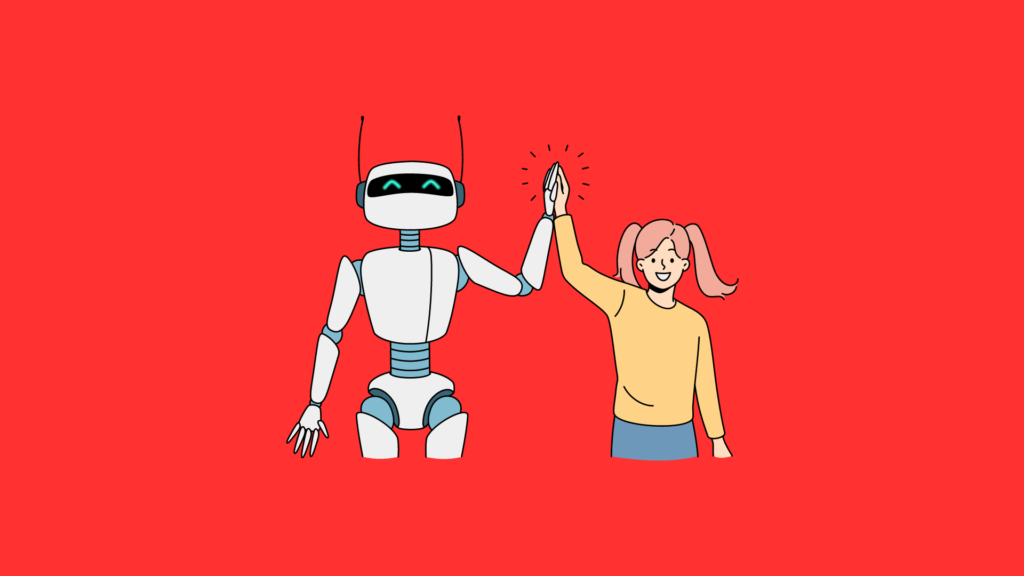AI refers to computer systems that can do activities that would ordinarily require human intellect, such as visual perception, speech recognition, and decision-making. While the concept of intelligent machines has existed for decades, recent advances in computer processing power, the availability of large datasets, and improved machine learning algorithms have led to a rapid expansion of AI capabilities.
Though often portrayed in science fiction as a potential threat, AI in reality holds great promise for improving people’s lives in many ways when thoughtfully designed and applied. This article explores the current and potential benefits of AI across various sectors.
Healthcare
In healthcare, AI is enabling earlier disease detection, more accurate diagnosis, and personalized patient treatment plans. One application is using deep learning algorithms to analyze medical images and detect signs of cancer, diabetes, and other conditions faster and more reliably than the human eye.
AI chatbots and virtual assistants are being developed to help patients conveniently access health resources and log symptoms. AI is also showing promise for improving drug development processes and medical research. For instance, AI can scan vast amounts of data from clinical trials and medical journals to generate new drug candidates and potential treatment options. With further development, such AI applications can significantly improve patient outcomes and lower healthcare costs.
Transportation
From self-driving cars to intelligent traffic coordination, AI is transforming transportation systems. Autonomous vehicles utilizing computer vision, sensors, and complex algorithms can react faster and more precisely than human drivers. This allows for reduced accidents, improved mobility for the disabled and elderly, and more efficient road infrastructure design.

AI is also being applied in public transit for functions like scheduling, route optimization, and predictive maintenance on vehicles. In the coming years, the integration of AI in transportation is expected to enhance safety, alleviate congestion, and reduce environmental impact. However, the transition will require addressing technological limitations, infrastructure needs, regulatory policy, and public acceptance.
Education
AI tutors and adaptive learning platforms are providing personalized education tuned to individual students’ strengths and weaknesses. AI can analyze a learner’s study patterns and areas of difficulty, then tailor lessons, practice problems, and feedback accordingly. For teachers, AI can automate routine administrative tasks, freeing up time for higher value instructional work.
Educational institutions are also applying AI chatbots to respond to common student queries about admissions, course registration, tuition payments, and more. Researchers are exploring the possibilities of AI for evaluating student essays and projects using natural language processing. As the technology develops further, AI could help democratize quality education worldwide.
Agriculture
AI innovations in agriculture are helping farmers boost crop yields, reduce waste, and limit environmental impact. For example, AI systems can monitor crop and soil conditions then automatically adjust irrigation, fertilizer, and pesticide application as needed. Agricultural robots utilizing computer vision and deep learning can identify weeds and perform precision weed control.
AI is also powering predictive analytics applications for tasks like anticipating weather patterns, disease outbreaks, and commodity price fluctuations. Such capabilities allow farmers to make informed decisions and elevate food production efficiency. In the future, the combination of AI and automation may enable highly autonomous farms requiring minimal human labor.
Business Operations
Across finance, marketing, human resources, and other business functions, companies are harnessing AI to streamline operations and better serve customers. Intelligent process automation tools can efficiently handle high volume, repetitive administrative tasks that previously required human effort. In customer service, chatbots are providing 24/7 assistance for common inquiries while connecting to human agents for unusual or complex issues.
AI sales prediction and dynamic pricing algorithms help companies maximize revenue based on fluctuating market conditions and customer demand. For human resources, AI talent acquisition platforms can automatically screen job applicants, schedule interviews, and rank candidates. While raising concerns over workforce displacement, AI enables businesses to reduce costs and delays while redirecting human talent to higher value work.
Cybersecurity
AI also holds promise for substantially advancing cybersecurity and combating disinformation. AI can process massive data flows to rapidly detect malware, hacking attempts, and other threats then instantly deploy defensive responses. It can also help identify patterns and connections that enable analysts to proactively disrupt malicious actors.
To counter disinformation, AI fact checking programs can efficiently parse digital content and pinpoint manipulated or fabricated information. Social media platforms are beginning to integrate similar AI capabilities to detect and limit the spread of harmful misinformation. However, addressing cybersecurity and online harms through AI requires thoughtful design to avoid unintended biases or overreach.
Environmental Sustainability
From monitoring emissions to coordinating renewable energy grids, AI applications are supporting greener, more efficient practices across industries. AI optimization algorithms can curb energy usage in manufacturing, transportation, agriculture, and buildings to reduce waste. Machine learning models can track environmental pollutants and methane leaks in near real-time to support rapid mitigation.
AI simulation of extreme weather events and climate effects provides actionable insights on local risks and disaster preparedness needs. Conservation groups are utilizing AI to prevent illegal deforestation and overfishing worldwide. As sustainability continues growing as a global priority, AI’s ability to enable evidence-based decisions and optimize complex systems at scale will become increasingly valuable.
Limitations and Concerns
While promising, AI also comes with risks and limitations requiring prudent governance. Algorithms trained on biased data can perpetuate harmful discrimination absent thoughtful design. Mass automation using AI may disrupt industries and workforce dynamics faster than displaced workers can adapt. Cybercriminals could exploit vulnerabilities in AI systems with broad societal effects. T
here are also concerns around data privacy, transparency, and AI possibly exceeding human control. As AI progresses, governments must develop sensible policies and regulatory frameworks to manage risks, promote accountability, ensure public input, and guide technology for the common good.
Moving Forward
When thoughtfully developed and applied, artificial intelligence holds immense potential for uplifting society through applications from healthcare to sustainability. But realizing AI’s benefits requires informed public discourse on capabilities, limitations, and tradeoffs. Policymakers, researchers, companies, and civil society groups need to collaborate to guide progress responsibly.
With wise governance and continuous innovation, AI can be a transformative technology improving lives worldwide. But success will depend on building human-centric AI systems rooted in shared ethical values. Overall, the future looks bright for artificial intelligence to amplify human potential and create a better society.


